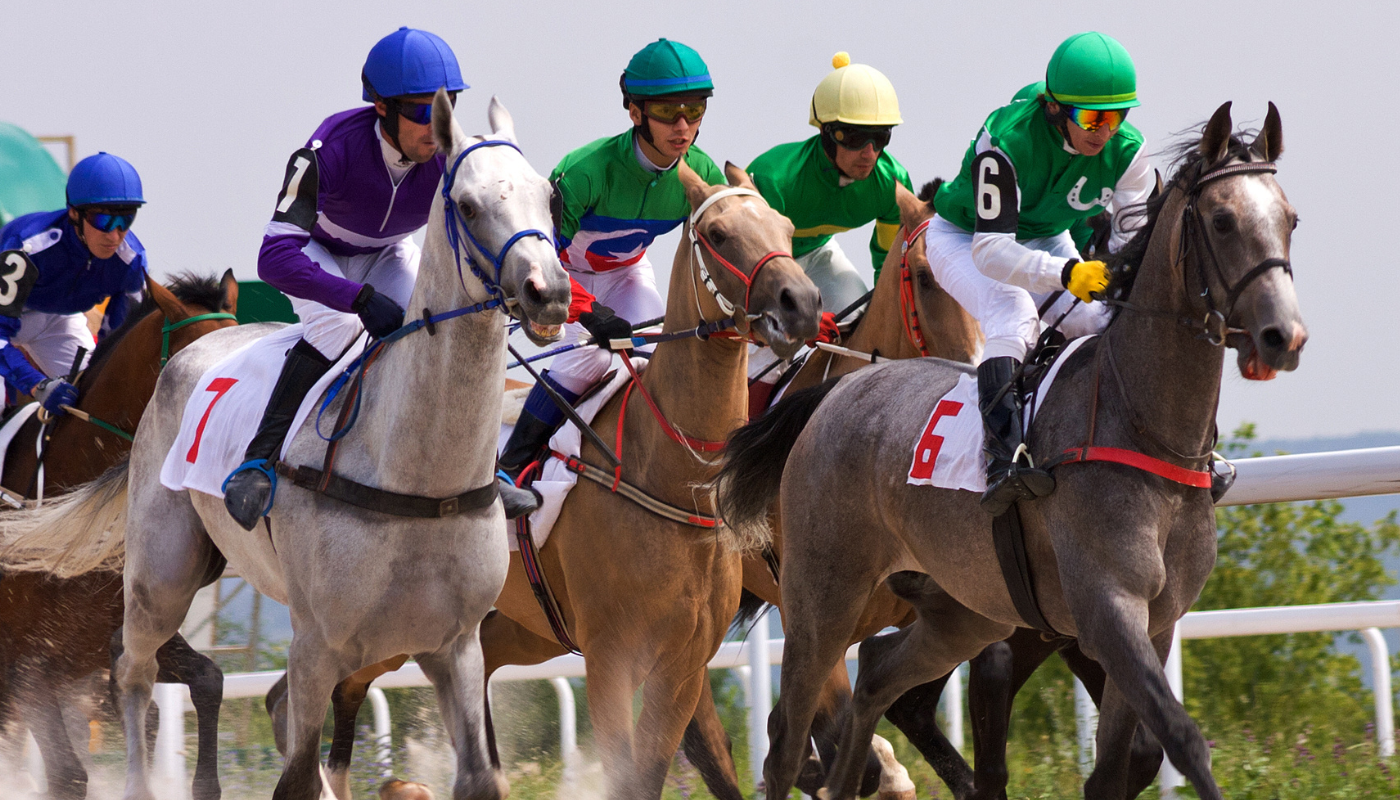Embarking on the thrilling world of horse racing betting can be as exhilarating as it is challenging. Whether you’re a seasoned punter or a newcomer eager to understand the ins and outs of picking winners, this guide is your gateway to demystifying the process. From understanding the odds to analyzing the horses and their track records, we’ll navigate through the essential strategies that can transform your betting experience from mere guesswork to informed decision-making.
Understanding Horse Racing Odds
At the core of horse race betting lies the fundamental concept of odds. They are not just numbers but a reflection of the horse’s chances of winning, the public’s perception, and the potential return on a wager. Understanding how odds work is essential for anyone looking to make informed decisions in horse racing betting. In essence, odds indicate the likelihood of a particular outcome. They can be presented in various formats, including decimal, fractional, and American odds, each providing insights into the expected performance of a horse.
Odds are determined by bookmakers based on a combination of factors such as the horse’s form, the jockey’s performance history, and other critical variables like track conditions and the horse’s reaction to them. However, it’s crucial to remember that odds also change in response to the amount of money wagered on each horse, adjusting as bets are placed up to the start of the race. This dynamic nature means that bettors need to stay alert and be ready to adjust their strategies based on shifting odds. Successfully interpreting these odds can lead to strategic wagers that maximize returns and enhance the excitement of horse racing betting.
Beyond understanding the mechanics of odds, savvy bettors also pay attention to the morning line – a set of odds released by professional oddsmakers before the betting begins. While not a prediction of the race outcome, the morning line offers valuable insights into how the race might unfold according to experts. By comparing the morning line with live odds, bettors can identify potential undervalued horses, setting the stage for profitable opportunities.
- Decimal Odds: Represent the total payout on a win, including the stake.
- Fractional Odds: Show potential profit relative to the stake.
- American Odds: Indicate the favorite with a minus sign and underdog with a plus sign.
- Morning Line: Initial odds based on expert analysis before betting starts.
- Live Odds: Change up to the race start, reflecting betting trends and horse conditions.
Analyzing Horse and Track Records
When it comes to betting on horse racing, one of the most critical steps is analyzing the horse and track records. This process involves a deep dive into past performances, understanding the nuances of track conditions, and recognizing the importance of a horse’s experience on similar tracks. By meticulously examining the track record, bettors can gauge the horse’s ability to handle various track surfaces, distances, and competition levels. Similarly, understanding a horse’s history, including its training regimen, past injuries, and recovery periods, is crucial for predicting future performance.
Furthermore, analyzing the jockey’s experience and their compatibility with the horse can offer additional insights. A jockey’s skill in navigating different tracks and their synergy with the horse can significantly impact the outcome of a race. It’s not just about the horse’s physical condition but also about the strategic decisions made during the race. Therefore, successful bettors often combine data on both horse and track records with the jockey’s track record to make informed decisions.
Lastly, weather conditions on race day can alter track conditions, affecting the performance of horses familiar with similar track conditions. Bettors should pay attention to weather forecasts and adjust their analysis accordingly. This holistic approach to analyzing horse and track records, considering all variables, is what often separates the novices from the seasoned bettors.
Further Insights into Horse and Track Record Analysis
Gaining an edge in horse betting requires not just understanding the past performances but also being ahead with predictions and trends. Advanced bettors often look into data analytics, employing statistical models to predict outcomes based on historical data. Moreover, the evolution of tracks and breeding practices over time can offer valuable insights into future performances, making the analysis of horse and track records an ever-evolving art form.
- Importance of track condition and surface type
- Impact of jockey-horse compatibility
- Relevance of training and recovery history
- Understanding weather impacts on race day
- Utilizing data analytics for predictive modeling
Importance of Jockey Experience
The world of horse racing is as much about the skill and experience of the jockey as it is about the speed and stamina of the horse. A jockey’s experience can be the defining factor in turning a good horse into a champion. This is because experienced jockeys possess an intuitive understanding of race dynamics, an ability to read the competition, and the skill to make split-second decisions that can affect the outcome of a race. They know how to pace a horse correctly, when to hold back, and the precise moment to push forward, maximizing the horse’s potential for success.
Moreover, a seasoned jockey develops a deep bond with their mounts, understanding each horse’s unique quirks, strengths, and weaknesses. This rapport is critical, as it allows the jockey to adapt their racing strategy to complement the horse’s natural abilities. For example, some horses may perform better when they lead from the front, while others excel at making a strong finish from behind. It’s the jockey’s responsibility to recognize this and adjust their tactics accordingly. The partnership between horse and jockey is a dance of precision and harmony, with the jockey’s experience playing a pivotal role in choreographing a winning performance.
However, it’s important to note that while a jockey’s experience is invaluable, it’s just one piece of the puzzle. The physical condition of the horse, the quality of its training, and even external factors like track conditions and weather can all influence the outcome of a race. Therefore, when betting on horse racing, it’s wise to consider the holistic picture, including the jockey’s track record, but also the horse’s form, the trainer’s success rate, and other relevant data.
Decoding the Jockey-Horse Dynamic
Understanding the nuanced relationship between a jockey and their horse can provide bettors with deeper insights into potential race outcomes. This dynamic is not just about mutual trust; it’s also about strategic alignment and the ability to communicate effectively under pressure. A jockey with years of experience brings a wealth of knowledge to the race, but their ability to sync with their horse can elevate their performance from good to unforgettable.
- Experience in reading race dynamics
- Ability to make split-second decisions
- Understanding each horse’s unique characteristics
- Skills in pacing and positioning
- Deep bond and effective communication with the horse
Further Perspectives on the Jockey-Horse Partnership
The partnership between a jockey and their horse is a critical element in horse racing that goes beyond mere experience. It encompasses a deep understanding of each other’s capabilities and a shared commitment to achieving victory. This symbiotic relationship is cultivated through countless hours of training and racing together, creating a bond that can significantly impact the results on the racetrack. Recognizing the importance of this partnership can offer bettors a more comprehensive approach to selecting their picks, potentially leading to more successful outcomes.
The Impact of Race Conditions
Understanding the impact of race conditions is crucial for anyone looking to bet on horse racing successfully. Race conditions refer to the various factors that can influence the outcome of a race. These include the weather, the type of track surface, the distance of the race, and even the time of day. Each of these elements can dramatically affect a horse’s performance, making it essential to consider them when picking winners.
The weather plays a significant role, as some horses perform better in dry conditions, while others excel on wet tracks. Similarly, the track surface can benefit certain horses over others; for example, a horse that runs well on turf may not perform as well on dirt or synthetic surfaces. The distance of the race is another critical factor, as some horses are sprinters who perform best in short races, while others are stayers, built for endurance over longer distances. Lastly, the time of day can influence a race’s outcome, with some horses showing a preference for racing at specific times.
To maximize your chances of betting successfully, it’s advisable to analyze past performances and consider how horses have reacted to similar race conditions in the past. This insight can be a valuable tool in predicting future performances and picking winners.
- Weather conditions and their impact on horse performance.
- Differences in track surfaces and how they affect race outcomes.
- Importance of race distance in selecting winning horses.
- Time of day and its potential influence on horse racing results.
- Analysis of past performances under similar race conditions.
Delving deeper into the impact of race conditions, it becomes evident that successful betting requires more than just understanding a horse’s past victories. It involves a comprehensive analysis of how external factors influence each competitor, offering insights that go beyond the basic statistics. This level of understanding can significantly enhance the betting strategy, leading to more informed and, hopefully, more successful bets.
Strategies for Betting Wisely
In the vibrant world of horse racing, the allure of picking winners and reaping rewards is undeniable. However, to navigate this exhilarating landscape with success, adopting a strategic approach to betting is essential. Betting wisely involves more than just following the crowd or betting on the most popular horse. It requires a nuanced understanding of the race, the horses, and how various factors interplay to influence the outcome. By honing your betting strategies, you not only enhance your enjoyment of the sport but also increase your chances of making profitable decisions.
First and foremost, research is the cornerstone of wise betting. This means delving into the history and performance of the horses in the race, understanding the track conditions, and considering the competence of the jockey. Each of these elements can dramatically affect a horse’s performance, and thus, the outcome of the race. For instance, some horses perform better on certain surfaces than others, while some jockeys have a knack for pulling off unexpected wins.
Another critical strategy is to practice bankroll management. This involves setting aside a specific amount of money for betting and sticking to it, regardless of wins or losses. It’s tempting to chase losses or increase bets after a win, but disciplined bankroll management ensures that you stay in the game longer and avoid the pitfalls of impulsive betting.
Moreover, diversifying your bets can significantly increase your chances of winning. Instead of putting all your money on a single bet, consider spreading it across different types of bets, such as win, place, and show, or exploring exotic bets like exactas and trifectas. This not only makes the betting experience more exciting but also spreads the risk, potentially leading to better returns in the long run.
Understanding the odds is also crucial. The odds reflect not just the chance of a particular horse winning but also the expected return on a bet. It’s important to look for value bets, where the potential return exceeds the risk involved. This requires a keen eye and a deep understanding of the market, as odds can fluctuate based on public betting patterns.
Finally, staying informed and adaptable is key. The world of horse racing is dynamic, with factors such as weather changes, horse withdrawals, and last-minute jockey switches capable of turning the odds. Keeping abreast of such developments and being ready to adjust your betting strategy accordingly can give you an edge over less informed bettors.
- Research thoroughly: Delve into horse, track, and jockey histories.
- Practice bankroll management: Set and stick to a betting budget.
- Diversify your bets: Spread your risk across different bet types.
- Understand the odds: Look for value bets where the return outweighs the risk.
- Stay informed and adaptable: Adjust your strategies based on the latest information.
Betting on horse racing offers a thrilling blend of chance, strategy, and knowledge. By employing these wise betting strategies, you position yourself to enjoy the races more fully and to increase your likelihood of success. Remember, the goal is not just to win but to savor the experience of participating in one of the most dynamic and storied sports in the world. As you apply these strategies, keep learning and refining your approach. The world of horse racing is always evolving, and so should your betting strategies. Happy betting!
The strategies outlined here serve as a foundation upon which to build your horse racing betting expertise. By dedicating yourself to research, disciplined betting, and continuous learning, you can enhance your understanding and appreciation of the sport. Betting wisely is not just about making money; it’s about becoming a more informed and engaged spectator. So, embrace these strategies, enjoy the races, and may your betting journey be both profitable and enjoyable.








